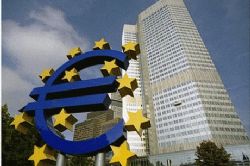- Business
- Childbirth & Education
- Legal Formalities
- Motoring
- Other
- Pensions & Benefits
- Property & Accommodation
- Taxes
- Airports and Airlines Spain
- Paramount Theme Park Murcia Spain
- Corvera International Airport Murcia Spain
- Join us for Tea on the Terrace
- When Expat Eyes Are Smiling
- Meet Wincham at The Homes, Gardens & Lifestyle Show, Calpe
- QROPS 2014
- Spain Increases IHT in Valencia & Murcia
- Removals to Spain v Exports from Spain
- The Charm of Seville
- Gibraltar Relations
- Retiro Park : Madrid
- Community Insurance in Spain
- Calendar Girls
- Considerations when Insuring your Boat in Spain
- QROPS – HMRC Introduces changes that create havoc in the market place
- QROPS – All Change From April 2012
- Liva & Laia : 15th November

The euro fell on Friday, keeping it on track for its worst week since mid-December after Spain set a softer 2012 deficit target than one agreed upon with the euro zone in a challenge to the EU's new fiscal pact.
Prime Minister Mariano Rajoy said Spain's new 2012 target of 5.8% of GDP was more realistic than the original goal of 4.4% but still fiscally demanding.
"The new higher self-imposed Spanish debt limit calls into question the basis of the European rescue agreement with Greece and other nations," said Joseph Trevisani, chief market strategist at Worldwide Markets in Woodcliff Lake, New Jersey.
The euro dropped 0.9% against the dollar to $1.3191. The euro has had its worst week against the dollar since the period ended December 18 at current prices, losing 2%. From peak to trough, 3 U.S. cents was lost in the last 3 days.
Meanwhile, the dollar climbed to a 9-month high against the yen, with the Bank of Japan seen focused on monetary easing, a policy that could weaken the yen and alleviate the need for direct intervention in currency markets.
Japan's core consumer prices fell for the fourth consecutive month in January, suggesting mild deflation could persist this year as lackluster wage growth curtails domestic demand.
SPAIN SAYS WITHIN GUIDELINES
Spain's Rajoy insisted he was acting within EU guidelines with the more lenient figure because it would still hit the EU public deficit goal of 3% of GDP in 2013.
Analysts said the ECB's injection of cheap funds this week should ease bank funding strains and support the euro zone's sovereign bond market but investors were likely reluctant to buy the euro as long as worries over debt and growth cast a cloud over the region.
Banks grabbed 530 billion euros at the ECB's offering of cheap 3-year funds on Wednesday as part of its long-term refinancing operation (LTRO).
Elsewhere in the euro zone periphery, Eurogroup President Jean-Claude Juncker said Greece, the epicenter of the crisis, has acted to secure a second bailout but the money can only be paid out after a bond swap between Athens and private investors is concluded by March 9.
ECB Governing Council member Carlos Costa, who is also the Bank of Portugal head, said Portugal's fiscal adjustment under a 78 billion euro EU/IMF bailout was on track, liquidity in the economy has improved, and any talk of additional rescue funding was "undesirable."
DOLLAR RISES VS YEN
The dollar climbed to 81.72 yen, according to Reuters data, its highest level since last May. It was last up 0.6% at 81.56 yen. The dollar has gained 0.5% against the yen this week, its fourth straight week of gains.
Traders said an option barrier at 81.75 yen attracted protective sell orders, which may prevent further dollar gains in the near term. The Japan data "does confirm the decade-long battle with deflation is ongoing," said Omer Esiner, chief market analyst at Commonwealth Foreign Exchange in Washington. "It validates the forecasts for a continued decline in the yen."
The Australian dollar, at its peak against the yen, touched a 9-month high of 88.00. The euro was down 0.3% against the Japanese currency at 107.59 yen.










